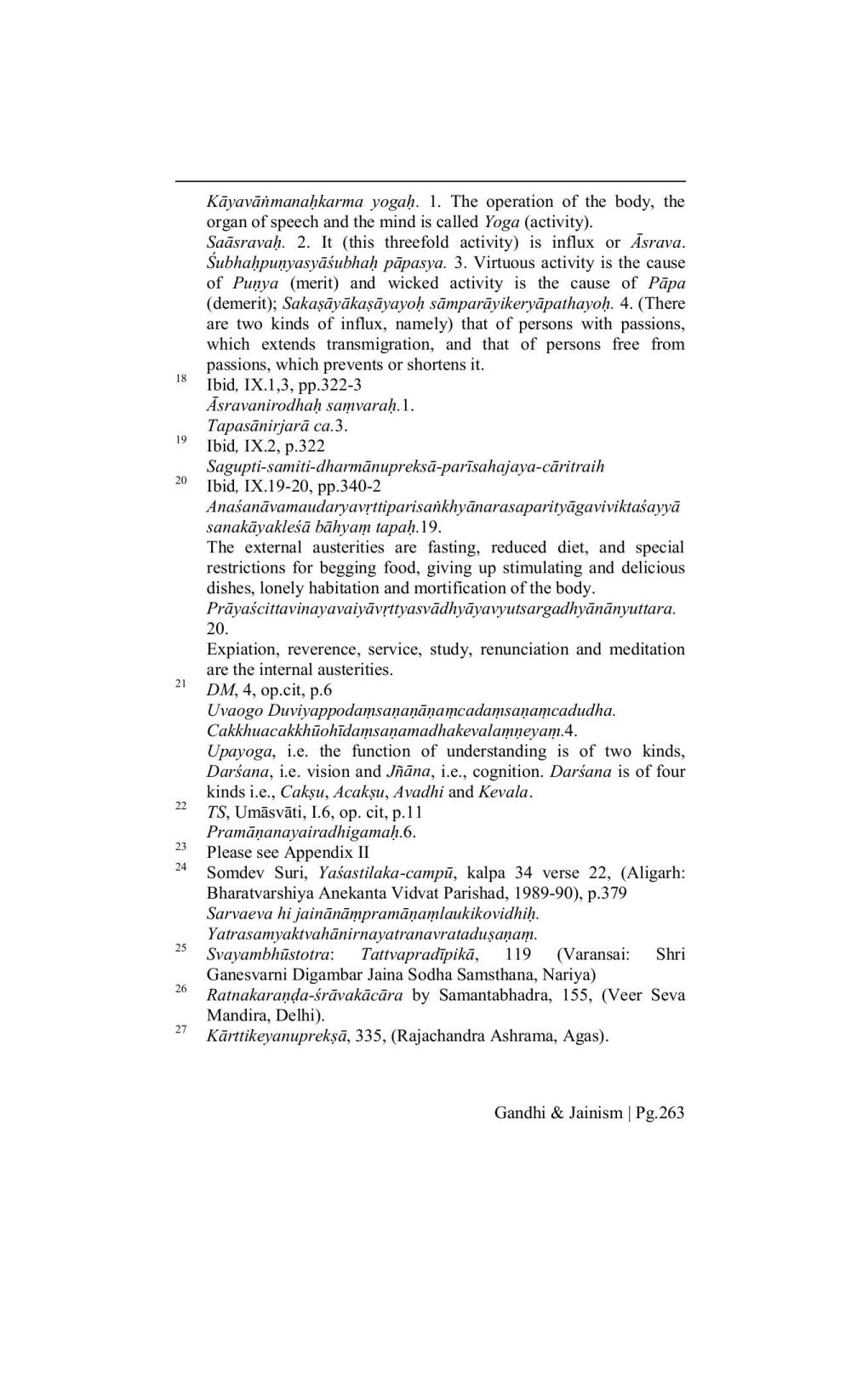________________
18
19
21
2 22
20 Ibid, IX.19-20, pp.340-2
Anasanavamaudaryavṛttiparisankhyānarasaparityāgaviviktaśayyā sanakāyakleśā bāhyam tapaḥ.19.
The external austerities are fasting, reduced diet, and special restrictions for begging food, giving up stimulating and delicious dishes, lonely habitation and mortification of the body. Prayaścittavinayavaiyāvṛttyasvādhyāyavyutsargadhyānānyuttara.
22
23
24
25
26
Kāyavānmanaḥkarma yogaḥ. 1. The operation of the body, the organ of speech and the mind is called Yoga (activity). Saasravaḥ. 2. It (this threefold activity) is influx or Asrava. Subhaḥpunyasyasubhaḥ pāpasya. 3. Virtuous activity is the cause of Punya (merit) and wicked activity is the cause of Papa (demerit); Sakaṣāyākaṣāyayoḥ samparāyikeryāpathayoḥ. 4. (There are two kinds of influx, namely) that of persons with passions, which extends transmigration, and that of persons free from passions, which prevents or shortens it.
27
Ibid, IX.1,3, pp.322-3
Asravanirodhaḥ samvaraḥ.1. Tapasānirjarā ca.3. Ibid, IX.2, p.322
Sagupti-samiti-dharmānupreksā-parīsahajaya-caritraih
20.
Expiation, reverence, service, study, renunciation and meditation are the internal austerities.
DM, 4, op.cit, p.6
Uvaogo Duviyappodamsanaṇānamcadamsanamcadudha.
Cakkhuacakkhuohīdamsaṇamadhakevalamneyam.4.
Upayoga, i.e. the function of understanding is of two kinds, Darśana, i.e. vision and Jñana, i.e., cognition. Darsana is of four kinds i.e., Caksu, Acakṣu, Avadhi and Kevala.
TS, Umāsvāti, 1.6, op. cit, p.11
Pramāṇanayairadhigamaḥ.6.
Please see Appendix II
Somdev Suri, Yasastilaka-campu, kalpa 34 verse 22, (Aligarh: Bharatvarshiya Anekanta Vidvat Parishad, 1989-90), p.379 Sarvaeva hi jainānāmpramāṇamlaukikovidhih.
Yatrasamyaktvahānirnayatranavrataduṣaṇam.
Svayambhustotra: Tattvapradipikā, 119 (Varansai: Shri Ganesvarni Digambar Jaina Sodha Samsthana, Nariya) Ratnakaranda-śrāvakācāra by Samantabhadra, 155, (Veer Seva Mandira, Delhi).
Kārttikeyanuprekṣā, 335, (Rajachandra Ashrama, Agas).
Gandhi & Jainism | Pg.263




